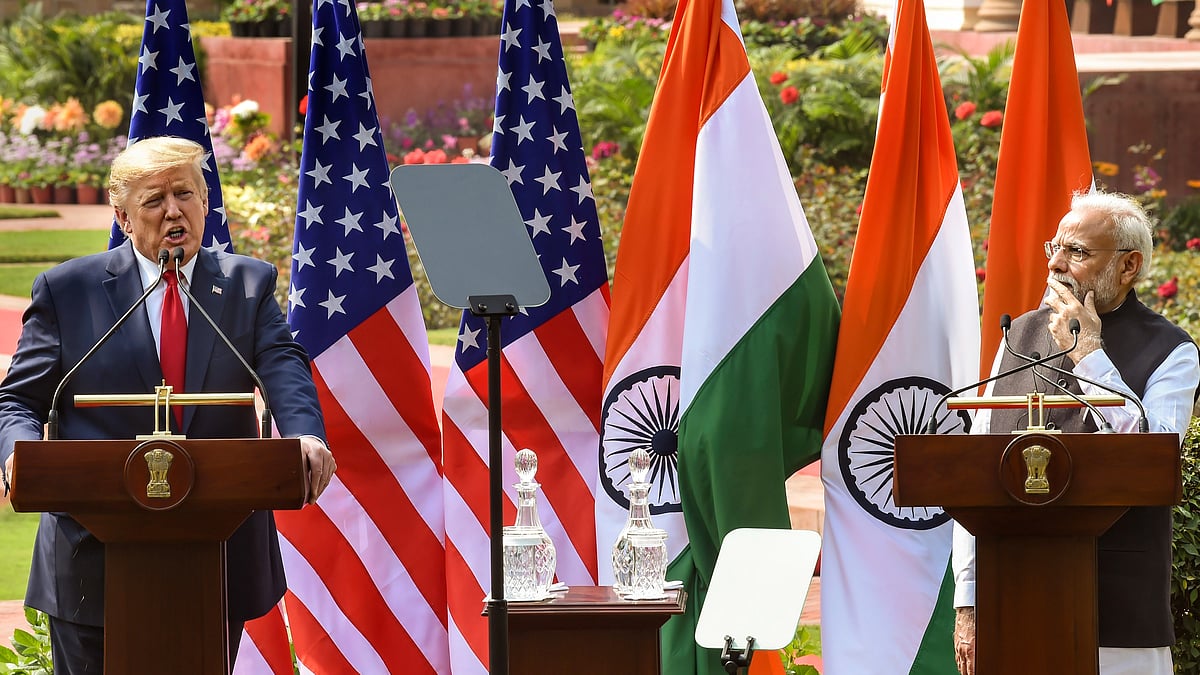Nation
With US negotiator in Delhi, trade talks set to resume amidst tariff dispute
Talks have been stalled for months over key disagreements, particularly US access to India's agriculture and dairy markets

Bilateral trade talks between India and the United States will resume in New Delhi tomorrow, 16 September, with US chief negotiator Brendan Lynch set to arrive late tonight. The renewed discussions follow a period of tension between the two countries over steep tariffs imposed by Washington on Indian exports.
According to a senior official from India’s ministry of commerce, Tuesday’s meeting will serve as a 'precursor' to the sixth round of formal negotiations for the proposed India–US Bilateral Trade Agreement (BTA), which had been originally scheduled for 25–29 August but was postponed indefinitely after US President Donald Trump slapped 50 per cent tariffs on Indian goods.
The talks have been stalled for months over key disagreements, particularly US access to India's price-sensitive agriculture and dairy markets, which India has remained firm on protecting. Lynch, who is the assistant US trade representative for South and Central Asia, will meet his Indian counterpart Rajesh Agrawal, special secretary in the department of commerce.
Union commerce minister Piyush Goyal last week expressed cautious optimism, stating that some initial deals could be finalised by November. “... since March, discussions have been going on... in a very good environment... progress is being made and both sides are satisfied with that progress,” he said.
Trump also confirmed the resumption of talks, praising Prime Minister Narendra Modi as his "very good friend". He added, “India and the US are continuing negotiations to address trade barriers... (and) there will be no difficulty in coming to a successful conclusion.”
Published: undefined
PM Modi responded positively but stopped short of calling Trump a "friend" in return — a detail that has not gone unnoticed among political observers. Modi stated he “deeply appreciates and fully reciprocates” Trump’s sentiments and positive assessment of India–US ties.
India and the US have been negotiating a new trade deal since March, a process accelerated by Trump’s public accusations that India is a “very big tariff abuser”. In response, Washington imposed a 50 per cent duty on Indian exports — including a controversial 25 per cent “penalty” related to India’s continued purchase of Russian oil.
India has firmly rejected the justification for these tariffs, calling them “unreasonable, unfair, and unjust,” while pointing out that the US and several European nations also continue to import Russian oil. Government sources estimate the new duties could affect up to $48 billion worth of Indian exports.
The fallout from the tariff decision prompted Indian officials to explore alternative markets in Europe, the UK, West Asia, and Japan to buffer the impact. “We do not expect the additional duties to significantly impact the economy,” said an official familiar with India’s trade strategy.
Yet, the friction continues. Just hours before Tuesday’s meeting, US commerce minister Howard Lutnick upped the pressure, warning India could lose access to the US market if it does not agree to buy American agricultural products, particularly corn.
“India brags they have 1.4 billion people. Why won't 1.4 billion people buy one bushel of US corn? Doesn’t that rub you the wrong way that they sell everything to us, and they won’t buy our corn? They put tariffs on everything,” Lutnick told Axios.
Published: undefined
India has made it clear that it will not compromise on core sectors such as agriculture and fisheries. The government has rejected proposals to reduce tariffs on items like corn, soybeans, apples, almonds, and ethanol, arguing that lowering duties would threaten the livelihoods of millions of small and marginal farmers.
These concerns also extend to India’s agriculture-based MSMEs, many of which are involved in pre- and post-harvest operations, livestock care, food processing, and rural agri-services. Officials believe that allowing an influx of cheaper US goods could devastate these fragile rural economies.
In his 15 August Independence Day address, Prime Minister Modi doubled down on this stance, declaring: “Modi is standing like a wall against any harmful policy related to the farmers, fishermen and cattle herders... India will never accept any compromise.”
While both nations are seeking a breakthrough, differences persist. An unnamed senior US official told Reuters last month, “Our challenges with India... they've always been a pretty closed market... (and) there are a host of other kind of geopolitical issues.”
Despite signing trade agreements with countries like Australia and Switzerland, India has consistently avoided granting significant duty concessions — a pattern unlikely to change under the current administration.
As Lynch and Agrawal prepare to meet in Delhi, the outcome of Tuesday’s discussions could determine whether the two nations are truly ready to move beyond the tariff standoff and build a broader, mutually beneficial trade framework.
With PTI inputs
Published: undefined
Follow us on: Facebook, Twitter, Google News, Instagram
Join our official telegram channel (@nationalherald) and stay updated with the latest headlines
Published: undefined